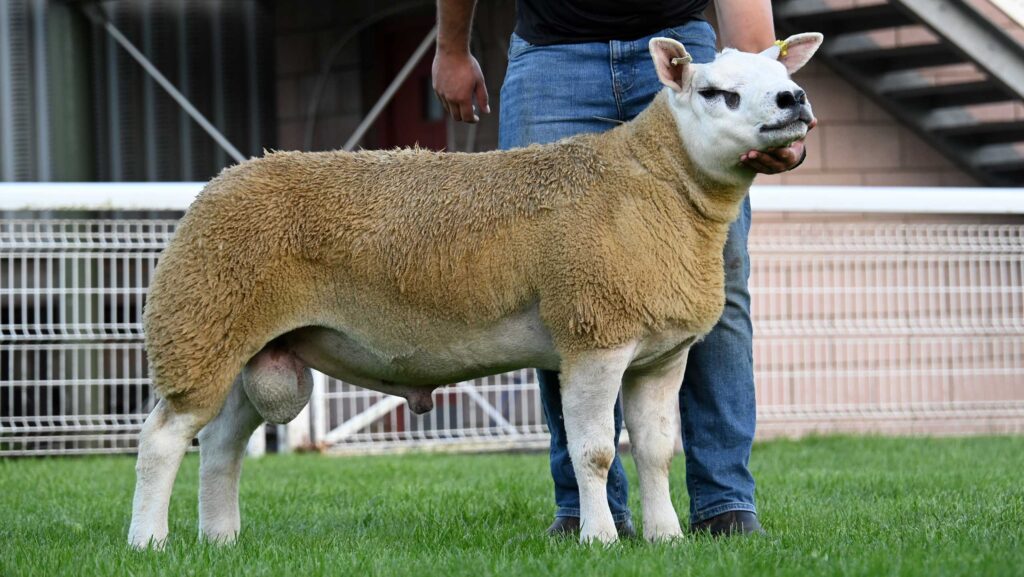Superb trade at NSA ram sale as average tops £1,000 a head
 © Ruth Rees
© Ruth Rees An average price of £1,044 a head was paid for tups at the NSA Wales & Border main sale on 22 September, up by 50% on the previous year.
Sale turnover was £2.51m, an increase of £266,000 on the previous year, despite slightly fewer tups present on the day.
Clearance rates were also high, with 92% of stock coming forward being sold.
See also: Breeding ewe sales notice uplift as trade picks up at marts
Top price on the day of 20,000 guineas went to the champion Texel ram lamb from the Teilo flock, near Llandeilo, run by the Davies family.
Cai Davies said: “I’m ecstatic. It’s one of those days that don’t come around very often, so we’re making the most of it.”
An entry of 500 Texel shearling rams sold to an overall average of £1,293 a head, up by £60 on the year.
Texel ram lambs achieved an exceptionally strong trade, with averages up by 76% on the year to £1,045 a head.
Traditional Bluefaced Leicester shearling rams averaged £1,300, up by £366 compared with the 2024 sale.
Charollais tups were also higher on the year, with shearlings and ram lambs averaging £974 and £887, respectively.
Auctioneer Greg Chistopher told Farmers Weekly that the Charollais tups were definitely dearer, with a very good clearance rate and only a handful of sheep unsold.
He said: “Good commercial tups would be anywhere from £900 to £1,200.
“The next notch down of commercial tups were £650 to £850, which would still be £200 dearer than 12 months ago.”
The top price for a Charollais ram lamb was 4,200 guineas, and went to Paul Amphlett of Brecon.
NSA sale chairman Geoff Probert said: “A huge effort by the whole of the team has duly been rewarded. It was probably the best standard of sheep ever seen at Builth and achieved the highest averages to date.
“All through there has been a wonderful atmosphere, with everyone involved reflecting the confidence in the sheep sector at the moment.”
Bluetongue restrictions
The number of sheep was down marginally on the year, with 2,411 sold.
Mr Christopher said: “The numbers would be lower mainly due to bluetongue restrictions and perhaps a touch more being sold privately.”
Despite this, there were still quite a few English vendors, he added.
Restrictions on moving bluetongue-vaccinated animals into Scotland and Wales were relaxed the day before the sale, on Sunday 21 September.
This meant English buyers were able to bring livestock to the sale providing the animals had been fully vaccinated.
